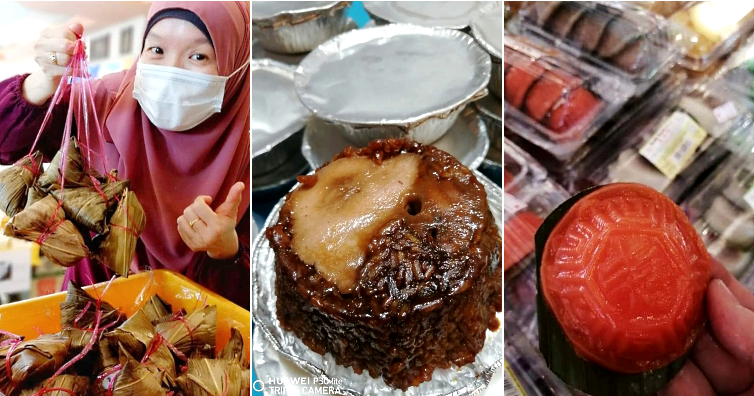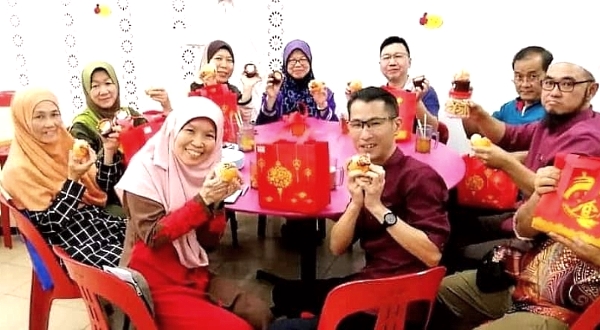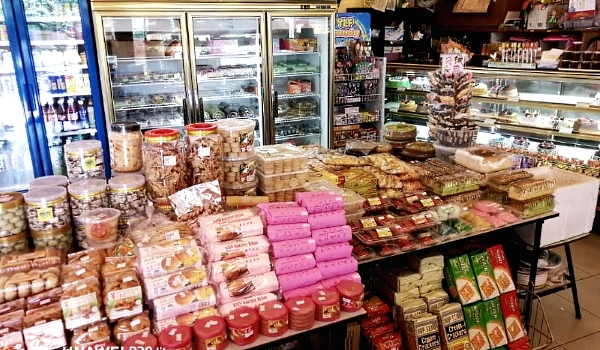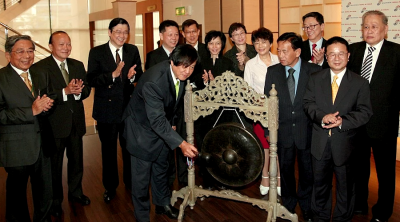
A pastry shop has become a melting pot for Muslims and non-Muslims after the Chinese owner embraced Islam in 2012.
Pastry shop owner Azura Tan, 47, converted to Islam after learning about the religion from her friends.
Prior to this, the pastry shop she has run for more than 20 years was selling halal food too.
Rice dumplings, rice cakes, glutinous rice and other traditional Chinese pastries sold at her shop now are all halal.
"During the winter solstice festival, I would make glutinous rice balls for sale at the shop. I also make rice dumplings during the dragon boat festival and mooncakes during the mid-autumn festival.
"I have many Malay patrons. Some times I also receive orders from other states," she said.
Azura is frank to admit that she has lost some Chinese patrons after embracing Islam. Now 50% of her patrons are Muslims although she still has Chinese patrons and some from Sabah and Sarawak," she added.
Azura sells halal traditional Chinese pastries because she wants to share the Chinese delicacies with people of other races.
"In fact, there are many Malays who are keen to savor halal Chinese food. Some try to make the Chinese pastry such as char koay. I also want my fellow Chinese Muslim friends to enjoy traditional Chinese pastries.
"I find it great to share the traditional Chinese culture with other non-Chinese Malaysians through food," she said.

As a Chinese, Azura is well versed with Chinese customs and culture. After embracing Islam, she has many Malay and Chinese customers who have approached her about culture and religions.
Her unique identity has made the pastry shop a melting pot.
Azura is more than happy to play the role of resolving misunderstanding and stereotypes among Malaysians of different faiths.
Citing an example, she said the practice of Malays to pay respect to the deceased at the cemetery on Hari Raya is a Malay custom and not an Islamic teaching. Similarly, Chinese Muslims are still paying respect to their ancestors during Qing Ming festival.
While about 100,000 Malaysians have converted to Islam mainly due to inter-racial marriages, Azura converted to Islam on her own accord.
She has been living with her non-Muslim parents, and is the only Muslim in the family.
Prior to embracing Islam, she was a vegetarian since young.
Azura considered herself fortunate as her conversion was not met with strong objection from family.
"My parents give me the freedom to decide and they respect my decision," she said.

After becoming a Muslim, Azura's family members have to prepare halal meals whenever they dine together.
Azura, a Hokkien from Bandar Sri Alam, is a graduate from Foon Yew High School, an independent Chinese high school in Johor Bahru.
She has come across extremists who claimed that she violated Islamic teaching by staying with her non-Muslim parents.
"Religion must not be used to sabotage the racial ties among Malaysians. All Malaysians hope to live in harmony and achieve a better Malaysia," she said.
ADVERTISEMENT
ADVERTISEMENT


































